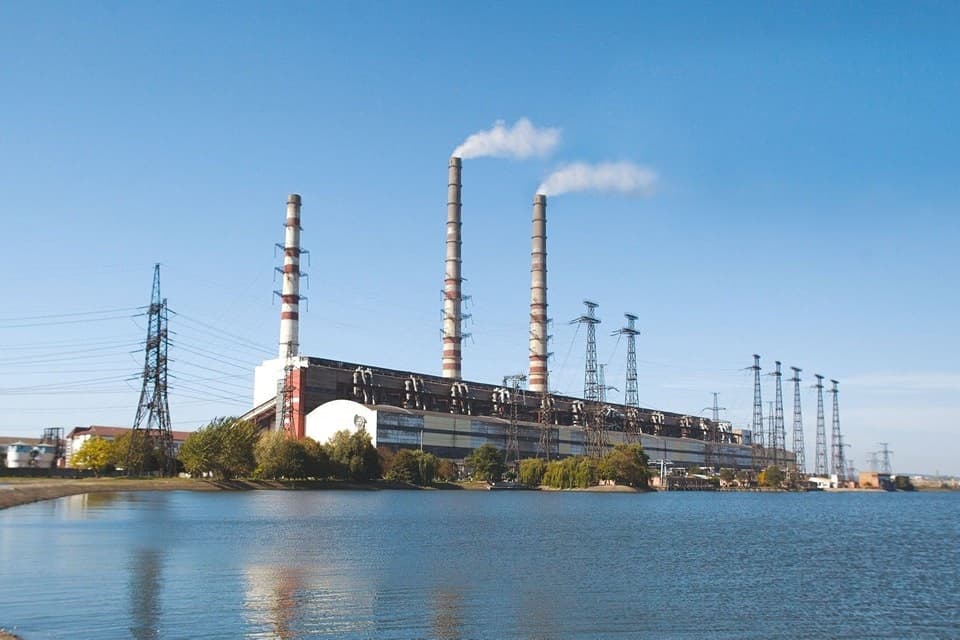Slovakia sends emergency electricity to Ukraine over unit shutdown at DTEK plant

Energy company DTEK was forced to import 300 megawatt-hours from Slovakia on the night of Dec. 21 to make up for the emergency shutdown of a faulty coal power unit at its Burshtyn thermal power plant in Ivano-Frankivsk Oblast.
DTEK generates 30% of Ukraine’s electricity and is owned by Ukraine’s richest man, Rinat Akhmetov. DTEK's power plants are among the top polluters in Europe.
The company said the emergency was caused by a malfunction that has been fixed overnight.
“Energy workers had to quickly eliminate the detected malfunction on energy unit No. 7, so to ensure a stable supply of Ukrainians with heat and electricity, we insured ourselves with additional megawatts from Slovakia,” the company wrote on Facebook.
However, malfunctions seem to be commonplace at the Burshtyn power plant. The facility had had a series of accidents this year, including electricity cutoffs in February, a fire in August, a burst pipeline in November and a boiler explosion that injured five people later that month.
According to the State Emergency Service, the Nov. 28 boiler explosion affected the same energy block that was forced to shut down on Dec. 21.
Damage from some of these accidents may be substantial. Radio Free Europe/Radio Liberty's investigative program Schemes reported that DTEK may have concealed the full scale of the breakdown of its coal ash and slag pipeline at the power plant on Nov. 1. According to the program's Dec. 2 report, hazardous waste flooded about 10 hectares of land, then pumped into a reservoir and into the Dniester River.
DTEK denied the allegations in a comment to the Kyiv Independent.
Unscheduled shutdowns also affect the country's energy security amid a nationwide electricity shortage. Ukraine has already had to request 3,500 megawatt-hours of emergency electricity imports from Belarus and 800 megawatt-hours from Slovakia on Nov. 2 to make up for a deficit in domestic production, according to the national electricity grid operator Ukrenergo.
The current lack of domestic electricity generation is primarily a result of two factors: decrepitude of many of Ukraine’s old power plants and the country's severe coal shortage.
Worldwide shortages of coal have made it exceedingly expensive and difficult to acquire. In 2021, Ukraine has spent a total of $2 billion on coal imports, 60% of which were from Russia.
However, Russia stopped exports to Ukraine on Nov. 1. Russia also blocked rail deliveries of coal to Ukraine from Kazakhstan.
According to Ukrenergo, Ukraine’s power plants had just 451,000 tons of coal, four times less than the government had planned, as of Dec. 13. Out of Ukraine’s 85 thermal power blocks, 19 were stopped due to a shortage of coal as of Dec. 13, Ukrenergo said.
Coal plants may be forced to switch to natural gas to make it through the winter. On Dec. 14, the Energy Ministry asked parliament to help the country’s thermal power plants buy the gas they need to keep working.
On Dec. 17, Prime Minister Denys Shmyhal tried to reassure the country that the coal shortage has been resolved. He said that Ukraine now produces and imports 2 million tons of coal per month and consumes 1.7 million.
But in a letter sent to the government on Dec. 8, the Security Service of Ukraine (SBU) reportedly warned the authorities that thermal power plants are only “one step away” from shutting down due to a critical lack of coal.
The SBU believes the situation could lead to a state emergency, threatening internal security.
In mid-November, President Volodymyr Zelensky promised that the state would ensure no one is left without heat or electricity. He claimed Ukraine has sufficient coal and will have additional shipments of coal delivered to maintain supplies.
Two ships carrying emergency coal deliveries to Ukraine have already arrived in Ukraine in late November-early December. According to Rostyslav Shurma, the deputy head of the President’s Office, 150,000 tons of coal were being unloaded in the country’s ports as of Dec. 14.
Ukraine expects seven more ships to arrive by the end of the month, Shurma said.










